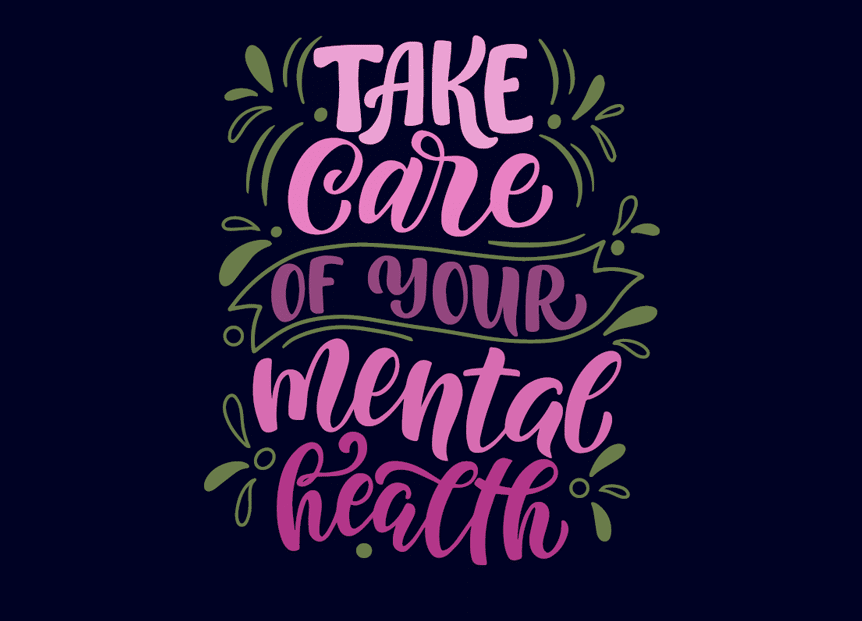
Often, New Year’s resolutions focus on getting the body in shape and not the mind; but our body and mind are connected. Maintaining positive mental health is vital to living well. People living with limb loss or limb difference experience a range of emotions as they strive to rehabilitate and adapt to their new way of life. Clinical research shows 30% of amputees experience depression and another 30% have PTSD. Most recently, the increased social isolation and constraints brought on by COVID-19 have exacerbated people experiencing negative emotions. The feeling of confinement at home, away from friends and family create even more danger to one’s mental health in the face of this new adversity.
One key solution to achieving positive mental health is seeking help and support. Yet so many are reluctant to obtain the help they need due to the stigma of mental health cases. Studies reveal that only 20% of amputees who need help with their mental health are receiving it, which indicate 80% are living untreated.
To increase awareness of mental health issues, the Amputee Coalition held an expert panel discussion on “Body, Mind, Wellness: Emerging Issues in Mental Health and Wellness” during its virtual 2021 National Conference in October. The session featured moderator Dan Ignaszewski, chief policy and programs officer for the Amputee Coalition, and invited guest speakers: Reggie Showers, patient relations representative for College Park Industries, motivational speaker, and two-time World Champion Motorcycle Drag Racing Champion; Posie Mansfield, president and co-founder of COP Amputee Association, Inc. (COPAA); Mahesh Mansukhani, chief executive officer of WillowWood; William Perno, MBA, FAC, secretary for the Amputee Coalition National Board of Directors; and Stephen T. Wegener, PH.D., M.A., professor of Physical Medicine and Rehabilitation at Johns Hopkins University School of Medicine.
The speakers shared 22 ways to maintain positive mental health in 2022:
- Do a self-assessment. “You have to self-assess to see if there are some issues that you’re dealing with that puts you in a place where you do have a mental health issue, and need to get some help,” said Showers.
- Ask for help. “We’re human beings and your emotions are real. You’re entitled to feel them, and you’re also entitled to go get help from somebody who can guide you through the process,” Showers said.
- Prioritize self-care. “You need to take care of yourself and not just others. If you’re not taking care of yourself, if you’re not mentally and physically well, you can’t help others,” said Mansfield.
- Learn about mental health. “Take time to learn more about what your burden is and what kind of help you should be receiving,” said Dr. Wegener.
- Be self-aware. “It starts with understanding and managing your emotions by being self-aware. Beyond are you feeling down, there are other symptoms to look for such as trouble concentrating, sleeping, and eating, or having little energy,” Mansukhani said.
- Take action. “One of the biggest challenges with mental health is that we always don’t ask for help. We all struggle in different ways so asking for help is tremendously important,” said Perno.
- Connect to a support group. “You are not alone. People experience different levels of emotional and mental wellbeing throughout their lives. We offer peer support, tools and resources, support group leaders, and peer visitors, which are all available to you,” said Ignaszewski.
- Invest in yourself. “You’ve got to invest in yourself; find people that can help you in your journey,” Perno said.
- Find out what makes you happy. “What brings you joy? What makes you happy? You may have some emotional or mental distress but there are other times where you are satisfied, happy, and living well. Identifying these moments is really important,” Ignaszewski said.
- Be grateful. “I started to look at not the losses, but the things that I had to be thankful for in my life. I became very appreciative of all the things that I had and all the things that I could be thankful for,” Mansfield said.
- Give back to others. “There’s a certain high that you get when you use your situation to help other people; it makes you feel good. It keeps you invigorated when people call you an inspiration, and when you are giving back to the community and doing good things,” said Showers.
- Focus your energy on positivity. “What do you pay attention to? This includes not just thinking about negative emotions. It’s thinking about building positive emotions too,” Dr. Wegener said.
- Find your purpose. “An idle mind is the devil’s workshop. When you’re sitting around doing nothing, that’s when your mind starts to wander, and you come up with crazy thoughts and can easily fly down that slippery slope into depression. I think we need to focus on our purpose in life,” said Showers.
- Be an example. “You’d be surprised by how many people are watching you and you don’t know it, but they know what you’re going through and they see how you handle it. Just that silent kind of witness can be a huge encouragement for lots of people,” Perno said.
- Try new things. “I encourage people to move out of their comfort zone. If you haven’t tried something before, give it a try; get out there and just give it a try,” Mansfield said.
- Have confidence. “Find ways to build your confidence and self-esteem as it improves your overall health and your quality of life,” said Mansfield.
- Monitor your emotions. “It is important to monitor positive emotions because not being depressed is not the same thing as being joyful. What we want to do is be aware and pay attention to the things in life that give pleasure,” Dr. Wegener said.
- Keep a positive events diary. “There are all kinds of things that happen that give us a little joy and uplift us. We should think every day about what happened today? Keeping a positive events diary is a good technique if you’re a person who journals,” said Dr. Wegener.
- Get on the move. “Get active. Go for a walk or get up and do something, even if it’s in a small way. I encourage people to get up, get dressed and move around your apartment, move around your house,” Mansfield said.
- Get focus. “How do we get focus? One thing to do is ask an intentional question, ‘What am I going to do today that will give me joy,’” said Dr. Wegener.
- Nurture positive relationships. “Relationships with family, the community, your providers in healthcare settings, and your prosthetist are so important because they open doors for you to have conversations where you feel safe and secure,” Perno said.
- Seek peer advice. “Being able to connect with other people who have walked the same journey as I have, who can give me a different perspective, who can offer advice, has helped me return to balance. And that’s where we all need to be. That’s where we all want to be. We want to be happily balanced,” said Showers.
In partnership with researchers at John Hopkins University School of Medicine, the Amputee Coalition has developed an innovative program to train prosthetists to assess and address their patient’s emotional well-being. The project goals are to improve the well-being of people with limb loss by developing scientific data and educational materials to support broad implementation of this pioneering program within the O&P community and incorporating training on programs that improve the emotional wellbeing of people with limb loss into the curriculum of nationally recognized prosthetic programs. This initiative also includes online tools that help amputees learn skills to build positive emotions, manage negative emotions, work well with health providers, connect with friends and family for support, and track progress in activity, mood, and physical functions. Access these free online tools on the Amputee Coalition website at www.amputee-coalition.org/limb-loss-resource-center/mental-health.
About the Experts
Reggie Showers
Reggie Showers lost both of his legs at the age of 14 from an electrical accident. Determined to live his life to the fullest, Reggie went on to become a two-time IDBA Motorcycle Drag Racing World Champion, professional speaker, pilot, rock climber, and adaptive snowboard instructor. Reggie is also passionate about being a great father and helping friends and family with construction projects.
Posie Mansfield
Posie Mansfield is a left above knee amputee since January 2011 from an infection in her knee. In 2013, she became a Certified Peer Visitor and in 2019, became a Lead Advocate and attended the Amputee Coalition’s Hill Day. She serves on the SciMac Committee for the Amputee Coalition as well as the Events Committee. She also serves on several boards of local disability rights/advocacy organizations. She is an EMT Instructor and teaches local fire, police, and ambulance services. She enjoys snow skiing, water skiing, cycling, tennis, sled hockey, and kayaking. She treasures the time spent with her four kids, six grandchildren and two great grandchildren.
Mahesh Mansukhani
Mahesh Mansukhani has over 25 years of experience in health care, industrials, and management consulting. He was president of Össur, the #2 global Orthotics and Prosthetics medical device manufacturer for nearly 5 years, where he grew the bracing and prosthetics businesses consistently 3-4x the market in that time. At Össur, his accomplishments include successfully convincing Medicare to grant two new L-codes for a micro-processor ankle (Proprio Foot) and Power Knee, acquiring and integrating 10 acquisitions, and overhauling the marketing and sales functions in the U.S. Mahesh also served on the boards of the American Orthotic and Prosthetic Association (AOPA) and the Amputee Coalition of America, and currently serves as vice president of the California Orthotics and Prosthetics Association (COPA).
William Perno, MBA, FAC
William Perno’s expertise in healthcare strategy and operational management is a timely 2018 addition to the board. He is currently the chief development officer for Value-Based Care with Revere Health and held past leadership roles include serving as vice president/COO of Mount Carmel Health Partners in Columbus, Ohio and president of West Florida Health in Tampa, Florida. He earned an MBA from the University of Phoenix, is an Air Force veteran, and has held volunteer leadership roles with the American College of Healthcare Executives, Food & Care Coalition in Provo, Utah, and the Seventh Day Adventist Church. Perno has a lower limb amputation and believes in providing everyone the opportunity to live the life they choose.
Stephen T. Wegener, Ph.D., M.A.
Dr. Stephen Wegener is a professor of physical medicine and rehabilitation at the Johns Hopkins University School of Medicine. He is also a professor of health policy and management at the Bloomberg School of Public Health. He serves as the director of the Division of Rehabilitation Psychology and Neuropsychology in the Department of Physical Medicine and Rehabilitation at Johns Hopkins. His clinical activity is focused on providing psychological services to persons with chronic illness or traumatic injuries including chronic pain, amputation, and traumatic injury. He is a Fullbright Scholar serving as Visiting Academic at Trinity College in Dublin, Ireland. He has served as president of the Division of Rehabilitation Psychology for the American Psychological Association; is currently on the American Board of Rehabilitation Psychology; and is a member of the Motivational Interviewing Network of Trainers. When not working, Dr. Wegener enjoys gardening, fishing, and spending time with his dog.
Dan Ignaszewski
Dan Ignaszewski is responsible for providing strategic direction for program development and implementation and oversees deliverables within the Government Relations Department, Peer Support Department, Resource Center Department, and the Education & Research Department at the Amputee Coalition. He serves as the principal investigator for the Amputee Coalition’s cooperative agreement from the Administration for Community Living to operate the National Limb Loss Resource Center®. Dan is also responsible for developing strategic partnerships to further the reach and impact of programs to support the community and the organization’s mission. Dan has been with the Coalition since 2008.

